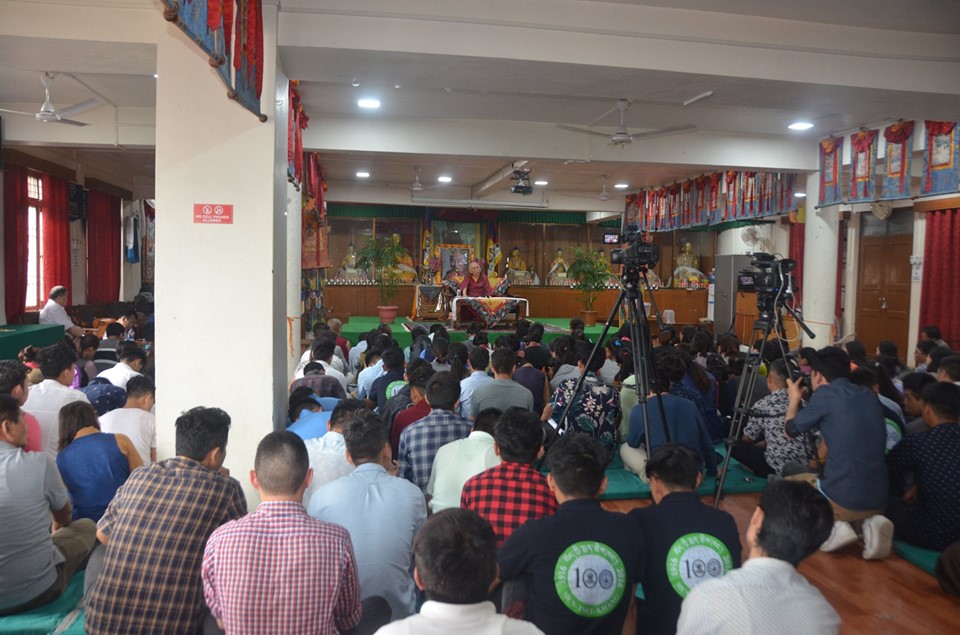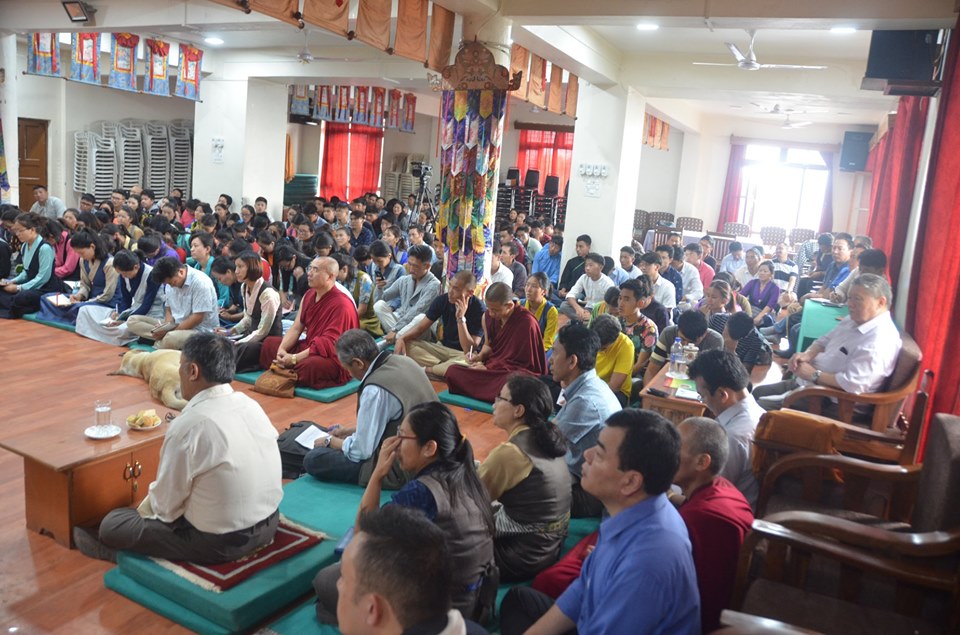A guidance talk at Mentseekhang (Institute of Tibetan Medicine and Astrology)
In the evening of 10 September 2019, at the request of Mentseekhang, Institute of Tibetan Medicine and Astrology, Dharamshala, His Eminence Prof. Samdhong Rinpoche gave, at the institute, a guidance talk on the theme of “The way to do studies on the traditional fields of knowledge”.
At the start, the institute’s astrology lecturer, Loden, gave an introductory and welcome speech.
Subsequent to that, His Eminence Prof. Samdhong Rinpoche gave the guidance talk.
His Eminence Prof. Rinpoche began by distinguishing “traditional” from the “modern”, pointing out that ‘traditional’ is meticulous and complete, whereas the ‘modern’ is randomly racing and partial; ‘traditional’ has its origin in an authentic source, of continuous lineage, and withstanding reasoning; the ‘modern’ is contrary to that, besides it pursues novelty (only to be discarded when it wears off), it is individualistic, and violent.
Continuing on, His Eminence described the understanding of “fields of knowledge”; the five fields of knowledge, and the varying listing of them; the varying listing of the ten fields of knowledge; of the five fields of knowledge, how greatly important are the knowledge of language and logic (‘valid cognition’);
the Tibetan language has metrics (chand) innate in it, yet there are no texts on it; analysis whether or not the traditional fields of knowledge are inclusive to the five fields of knowledge; the way to study the traditional fields of knowledge is to do in accordance to the sequence of practising the three trainings (of ethics, meditative concentration and wisdom); if it is a Buddhist field of knowledge, it needs to be with the combined approach of learning, reflection and meditative familiarization; one needs to differentiate between ‘knowing’ and ‘assuming’; to study the traditional Tibetan fields of knowledge, one needs to know sufficiently the Tibetan language, and to have at least some understanding of the path of reasoning. His Eminence Prof. Rinpoche spoke in detail on those and other related insights.
Thereafter, His Eminence answered questions. At the end, Pema Gyaltsen, a lecturer on Tibetan medicine at Mentseekhang, gave a gratitude speech.



